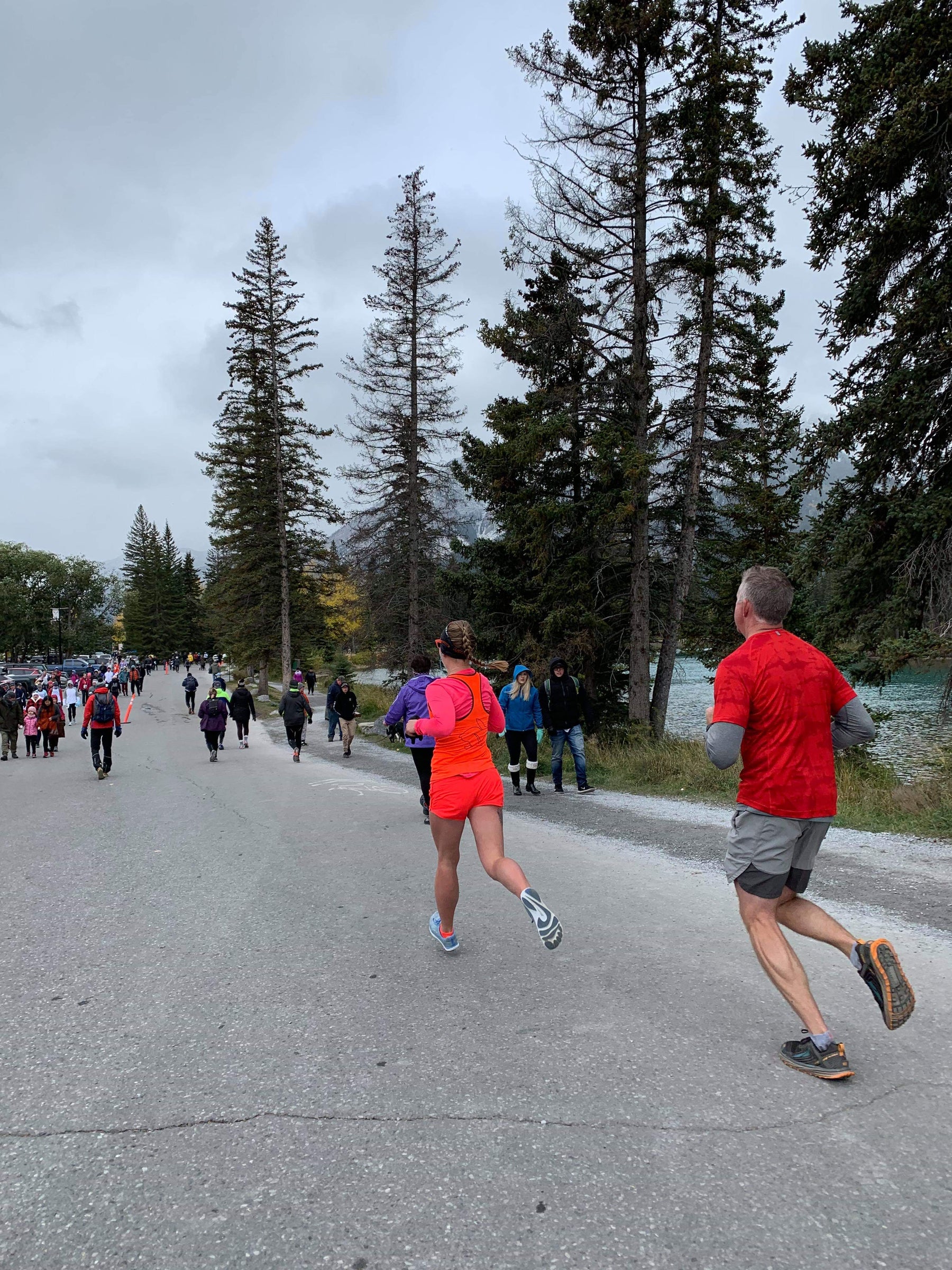Order over $100 and get Free shipping in Canada
Free shipping Across Canada On Orders Over $100

Marathon season is coming!
With Covid, most of the year’s big marathons -and local races- have been pushed into the late summer and fall. As fans of the sport we are excited to see what happens with the elite fields in Berlin (on September 26th) and Boston (October 11th). But, as mere mortals who enjoy running (re: mediocre athletes) we are starting to feel the pressure to get some good training in for the races ahead, and panic miles are looming on the horizon. If you are like us, you are shaking off all the lackadaisical pandemic training (re: napping and drinking casual margaritas on a Tuesday) and trying to get your butt in gear for racing.
To calm our jangly neurotic runner nerves, we asked full time trail crusher and part time road warrior Liz Halleran for some guidance as she prepares to race Boston in a couple months time. This is what she had to say…
I have never nailed a marathon, but I have run many bad ones, which is why I feel like I have so many tips to share. They are pretty simple, the kind of thing you've probably heard and ignored 100 times before. But, once I came around to them, I've found they've made the biggest difference in my marathon training and racing experiences.
Learning how to fuel properly was probably the single biggest factor in shaving tens of minutes off of my past marathon times. If you're not fuelling properly, correcting that is an insanely easy way to improve your performance. I used to maybe bring one or two gels for a 3 hour training run, I once ran a marathon on only a small pack of sour patch kids. I was afraid of over consuming and having stomach issues, and I thought that bonking was just part of the deal. I had a coach convince me I needed to take in 200-250 calories an hour, and not just on race day. Once I started to stick to this fuelling strategy on anything over 1.5 hours I realized you don't have to hit the wall, bonk, fade, whatever, you can actually maintain your pace through a long run. Spring gels and the drink mix are my go-tos.
This one takes patience and practice. On one hand, I'm a big fan of pursuing lofty goals but on the other hand, I've had some big blowups resulting from either training at paces way too hard for me, or going out at the start of the race way too hard. I've had much more success following training plans based on effort level rather than a specific pace. It can take some trial and error to get in tune with what your effort level truly is and put your ego aside but I think it's so important if you want to get the best out of yourself. You might realize that your perceived effort level can really vary day to day, which I try to keep in mind on race day. I've become more comfortable starting out the marathon slightly slower than goal pace, assessing how I feel that day, and then making the call to speed up once I can gauge how I'm feeling that particular day.
Most of the mileage you do every week will be way slower than your marathon pace; this is a good thing. Run your easy runs as easy as you need to feel fresh for the days where you're doing a workout or long run so that you can take advantage of those hard efforts. Running easy most of the time lets me take a break mentally too, so that when it's time to go into the pain cave in my workouts, I'm not burnt out from putting pressure on myself during every single run of the week.
Especially in the Bow Valley, the mountains and mountain sports we are immersed in serve as huge distractions. While it's tempting to do longer alpine trail runs or pursue a mountain FKT, I'm enjoying focusing on the roads this summer. My weekend long runs are way shorter (1.5-3hrs) than they are when trail running or ultra training (5-10 hours) so I have a lot more time to do normal-person things (socialize, sleep, life admin). Roads are also super accessible from my house and, logistically, everything is just easier to plan. I try to run most of my runs on pavement but I still throw in a shorter trail run, a hike or a bike ride so that it doesn't get boring and I don't feel like I'm depriving myself of, you know, having fun!
You know the one I'm talking about. You have shin splints, or maybe a strained hamstring. Maybe nothing is wrong with your body yet, but you're running on almost no sleep, perhaps trying to reconcile a stressful week at work. You can just feel your body is about to give out on you but the plan says hard intervals. You're afraid you'll get behind on training and your ego wants the satisfaction of following the plan. I've learned that these are the times I need to skip the workout/run altogether, or at least reschedule it to a different day. Making these adjustments is so important to stay healthy, avoid injury and continue to enjoy your training. I promise you won't lose any fitness if you skip a day, even a week, but you can definitely do damage within that time and it's not worth it to be out for several weeks late
{"one"=>"Select 2 or 3 items to compare", "other"=>"{{ count }} of 3 items selected"}